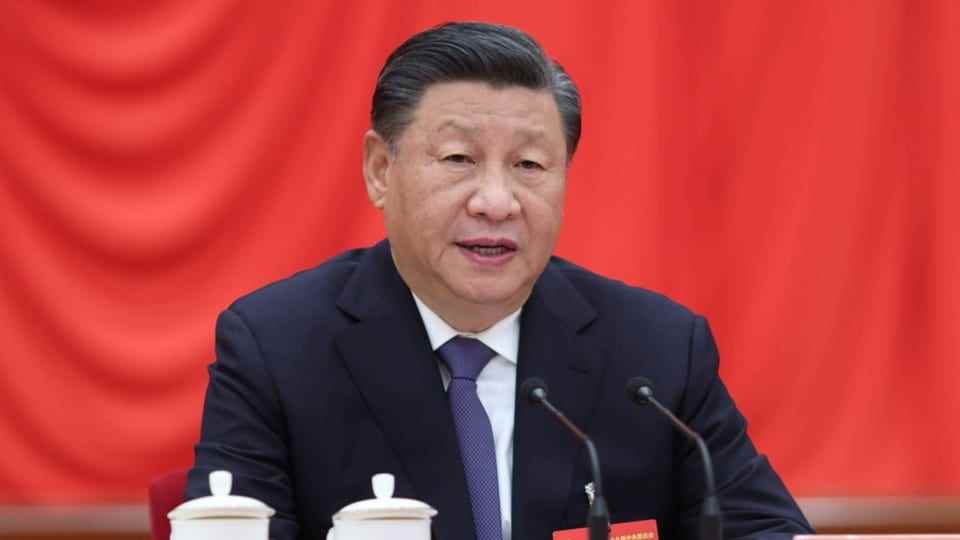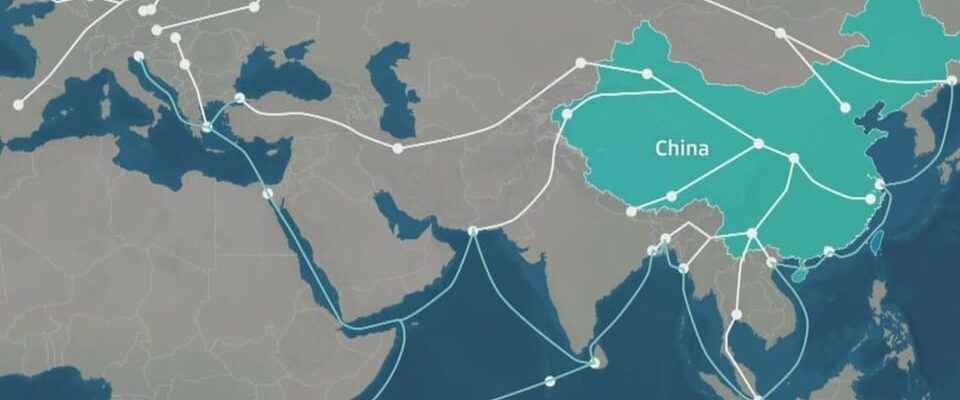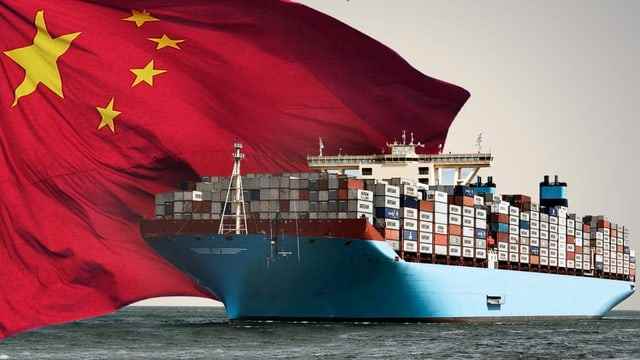contents
In Hamburg, China wants to buy into Europe’s third largest seaport. It seems that the Chinese “Belt and Road” initiative is gaining momentum despite all the trade barriers.
China’s “Belt and Road” initiative, also known as the new Silk Road, is considered the largest infrastructure project of modern times. Beijing wants to send massively more goods to the world and to Europe, both on water and on land.
Legend:
China has already invested almost one billion US dollars in the “Belt and Road” initiative. A freight train will one day need 20 days to travel between London and the east coast of China.
Natural earth
The initiative consists of numerous projects, ranging from hydroelectric power plants in Pakistan to highways in the Balkans.
However, the projects are not all linked to one another, explains Martin Aldrovandi. SRF’s former China correspondent says: “Some things were later brought under the umbrella of the new Silk Road”.
When China’s head of state Xi Jinping first announced his plan for the “Silk Road of the 21st Century” almost ten years ago, the concept was difficult to grasp. As of today, China has systematically acquired stakes in strategically important infrastructure along the land and sea trade routes. We are talking about around one billion US dollars.
Achieve according to Xi Freight trains from China today 200 cities in 24 European countries. Investments have been made in around 100 ports in over 60 countries worldwide. For example in Sri Lanka, where China had secured the lead in the port of Hambantota for 99 years.
Experts assume that China has become the world’s most important public financier for developing and emerging countries. In an interview with the NZZ, the economist Sebastian Horn estimated that China grants more loans than the World Bank or the International Monetary Fund.
Many states have borrowed and it is questionable whether they will ever be able to repay the money.
The accusation from the West: China is engaged in “debt diplomacy”. Martin Aldrovandi explains: “Many states have taken on huge debts for the projects and it is questionable whether they will ever be able to pay back the money.” This is one of the reasons why skepticism about the new Silk Road has increased in recent years.
After all, the Chinese spheres of influence are also increasing with the debt. SRF Australia correspondent Urs Wälterlin observes in various Pacific island states: “Anyone who wants money has to support Beijing and, for example, turn away from Taiwan diplomatically.”
But isn’t the pandemic, the war in Ukraine and a cooling global economy putting a stop to the Chinese prestige project? The opposite could be the case.
With Chinese investments through the crises
Because China can step into the breach with its financial resources where certain states can no longer get out of economic difficulties themselves. At this year’s Communist Party Congress, Xi Jinping spoke of “China’s contribution to a world economy that brings greater benefits to all peoples.”
China’s leader equally emphasized how the new Silk Road would boost prosperity amid the ongoing coronavirus pandemic.

Legend:
With less than two hours, party and head of state Xi Jinping was shorter at this year’s party congress than five years ago, when he committed his comrades to his goals for three and a half hours.
Imago Images
However, the geopolitical obstacles remain. The economic corridors planned as part of the “Belt and Road” initiative, which lead through Russia, Ukraine or Iran, for example, are not necessarily stable.
It has basically become a little quieter around the new Silk Road.
The current China correspondent for SRF Samuel Emch finds: “It has basically become a little quieter about the new Silk Road.” And that is partly due to geopolitical developments.

